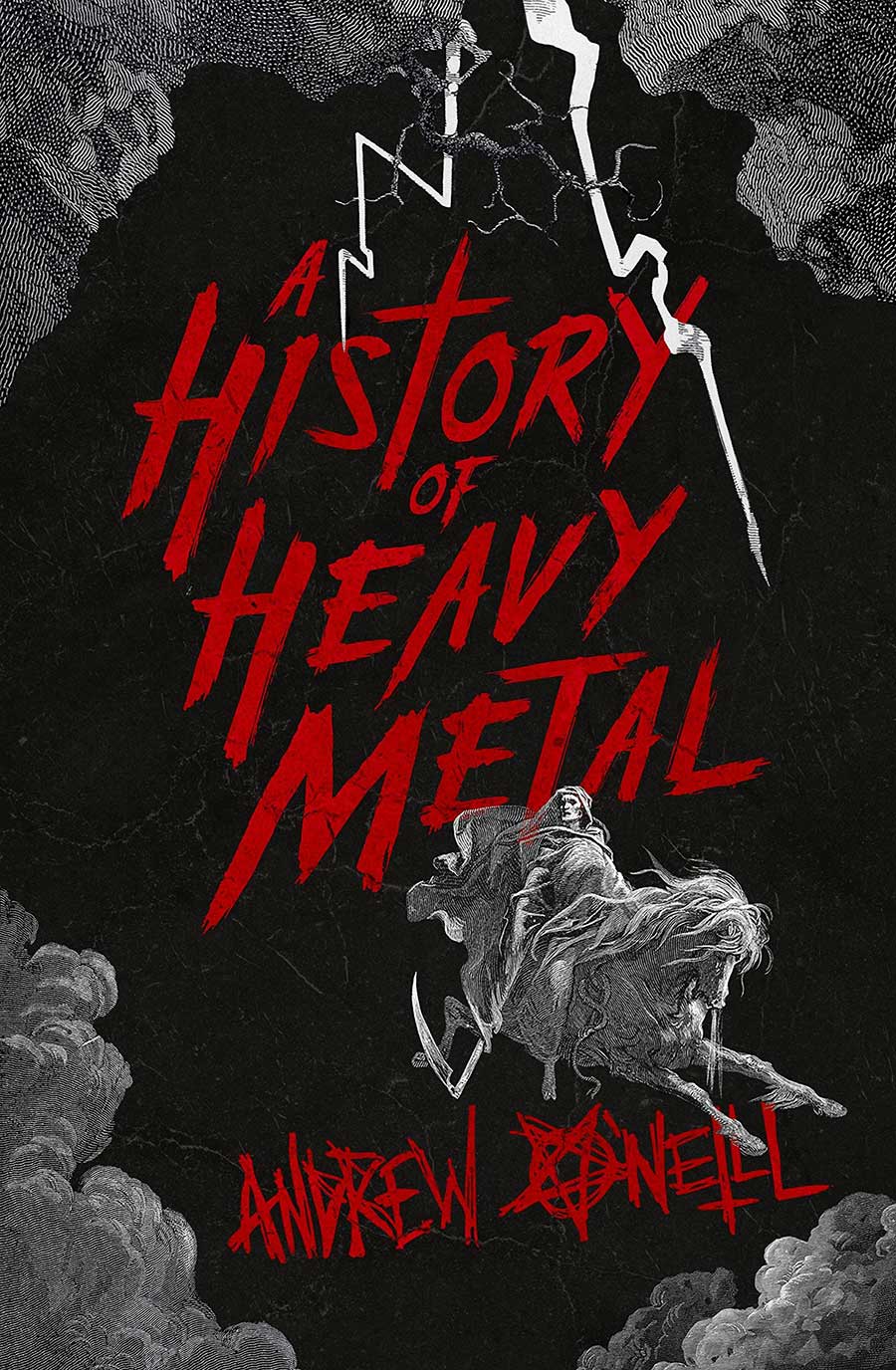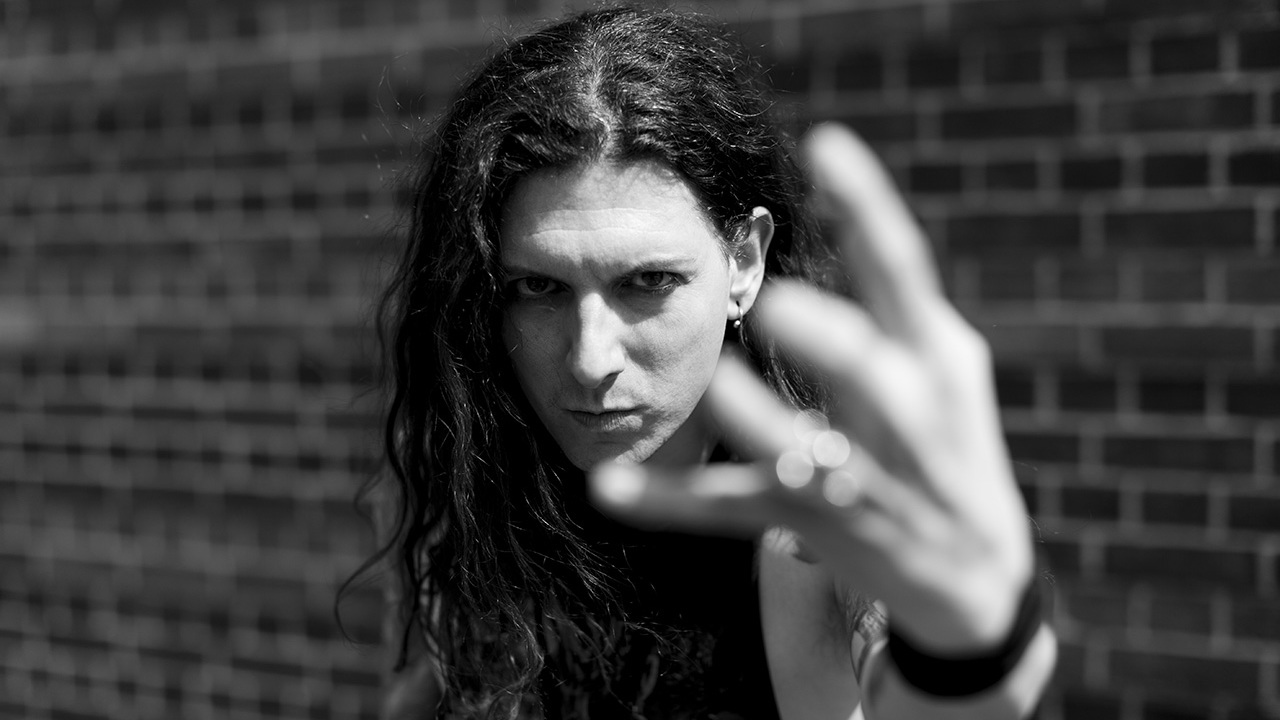The following is an exclusive excerpt from stand-up comedian Andrew O’Neill’s new book A History Of Heavy Metal, which is available to buy now.
At the time my metalhead friends and I thought the first Korn album was a breath of fresh air. Released in 1994, it contained loads of the elements we already dug in metal – downtuned guitars like the death metal we loved, an emotional truth in the lyrics and a vocal performance which spoke directly to our suburban teenage alienation (as it would to literally every other suburban teenager who thought they were alienated …).
Korn’s subject matter in early records was rooted in childhood trauma. In contrast with most metal, which has a persona of toughness, of projecting inner strength and anger directed outwards, Jonathan Davis showed his weakness. His was a persona of the bullied child having had enough and finally lashing out. In the song ‘Faget’ he takes the homophobic insult he grew up hearing and turns it into a desperate expression of rage. In ‘Daddy’ he ends the track crying inconsolably.
This was an absolute watershed in rock music – later it would be taken even further in the emo movement, which fetishised alienation, self-harm, post-traumatic stress disorder and depression/anxiety. Goth and industrial music did this to a degree, but with a pathology rooted in adulthood – addiction, heroin and adult fuck-ups.
Musically, Korn blend their influences into a coherent whole. The hip-hop elements are infused in the rhythm section in the manner of the Beastie Boys, rather than imposed on top of the music like the mash-ups of Anthrax/Public Enemy and Aerosmith/Run-D.M.C. Later nu-metal would exhibit an uneasy oil-and-water mix. The guitars are downtuned and the bass and drums lock together in a powerful groove. Though exhibiting some remnants of rap, Davis’s vocals are aggressive, expressive and fucking weird. He does the most bizarre raging scat vocal.
My flirtation with Korn only lasted as long as the tail-end of puberty. I still have a soft spot for them – I admire anyone who sticks to their guns as much as they have, and there will always be a fresh market of disenfranchised suburban teenagers who need music.
After the success of Korn, the album’s producer, Ross Robinson, became the most sought-after producer in mainstream metal for the best part of a decade, the familiar label goldrush began and hundreds of similar bands were signed. It turns out we had been wrong. That album wasn’t a breath of fresh air. It was a pocket of fresh air being pushed along the music industry’s colon in front of a massive load of shit. Anyone with a DJ, a quirky hairstyle or a shopping-centre kook appeal was snapped up. Roadrunner – formerly a reliable label for metal that had broken Sepultura, Machine Head and Fear Factory – began to chase trends and sign any old shit with turntables and wacky hair. Like fucking Coal Chamber. Coal Chamber were a distinctly forgettable, cartoonish band, taking all the childish aspects of Korn and throwing away the real emotion and aggression. Try to find a picture of Coal Chamber where one of them isn’t doing a broken-doll I-SO-KRAZY pose. You won’t find one. They took an ice cream van to their gigs to hand out free ice creams. That’s like the opposite of metal.
Limp Bizkit were a much more testosterone-driven band, adding a lot more hip-hop and a great deal more self-con dent swagger to their mix. They were signed after touring with Korn and, basically, they suck, but they got HUGE. If you think that name is bad, you’re right. Fred Durst says he wanted a name that would repel people.
Then we had a real deluge. Puddle of Mudd, Mudvayne, Papa Roach, Creed. Nu-metal is clearly influenced by the early days of the internet. Bands whose titles are like usernames (Sum 41, Primer 55, Linea 77, Factory 81, Project 86) are joined by bands whose names resemble things my cat spells out when he walks across my keyboard: (Hed) PE., P. O.D., AqME, Sw1tched, 4 Lyn. The wackiness makes my teeth itch.
Nu-metal began to infect older, good bands. Sepultura used Korn’s producer, Ross Robinson, on their tribal-meets-death-metal album Roots. The album was an enormous success, but disquiet over the departure from their – ironically – extreme metal roots was expressed by old-school Sepultura fans.
The worst thing nu-metal ever did was ruin Machine Head. Whether as a result of record label pressure or simply due to them going out of their fucking minds, Machine Head followed up their flawless post-thrash debut, Burn My Eyes, with a series of records that increasingly took the hip-hop-infused chug of nu-metal and ruined everything that was good about them. The Burning Red is Machine Head’s Cold Lake. They have redeemed themselves in recent years with an injection of Judas Priest-like dual-guitar old-school metal, but they have never quite recaptured the genius of that first record.
Then in 2000 came Linkin Park. Rumours abounded that they were a full-on manufactured boy band, cynically put together to capitalise on the mainstream pop-metal market. They certainly sound like it. It has been suggested that the terrible name was suggested by their record label, so they’d be next to Limp Bizkit in CD racks. The music is soulless and sounds like it was made by a committee. Everything about them is designed to be marketable. They have a policy of not swearing. Fuck that. I’ll take that from Jerry Seinfeld but not from a metal band. Unsurprisingly they have sold tens of millions of records. The frontman has his own line of clothes, in conjunction with Porsche. Make of that what you will.

A History Of Heavy Metal is out now, published by Headline. You can get your copy now from Amazon UK or Amazon US.
You can catch Andrew O’Neill at The Liquid Rooms throughout the Edinburgh Fringe from August 5-27. Get your tickets now.
The Top 10 Essential Nu Metal Albums
Dez Fafara: How Coal Chamber saved LA and why nu metal rules
